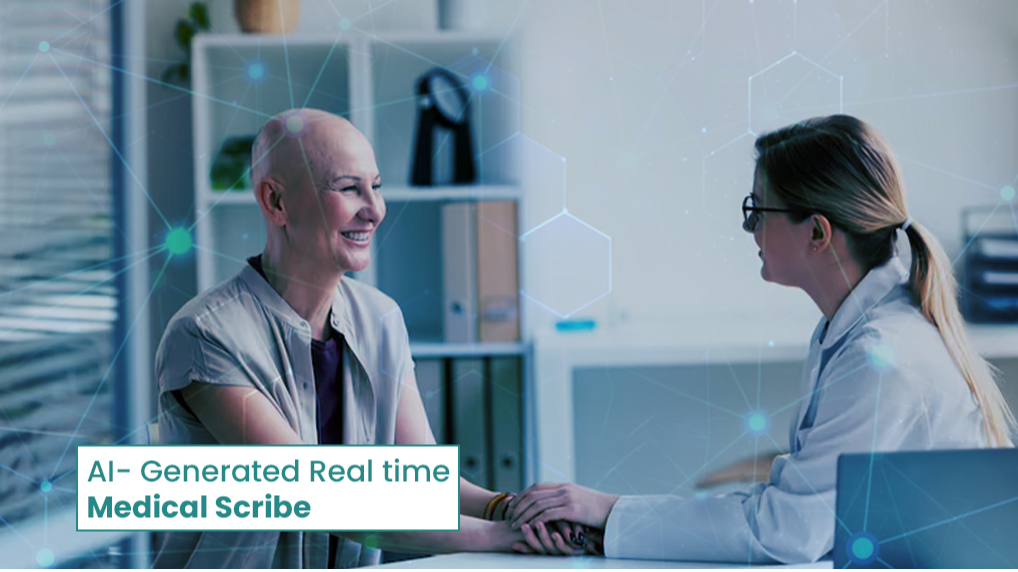Artificial Intelligence has emerged as a game-changer in various industries, and healthcare is no exception. One notable transformation brought about by AI is in the realm of medical scribing. Traditional medical scribing, involving manual documentation of patient interactions, is undergoing a radical shift thanks to AI-driven solutions.
Medical scribes play a pivotal role in ensuring accurate and thorough documentation of patient encounters. However, the conventional method is time-consuming, demanding, and sometimes prone to human errors. This is where AI steps in, offering a seamless blend of technology and healthcare expertise.
AI-powered medical scribe solutions capture and transcribe patient-provider conversations in real-time. Natural Language Processing (NLP) algorithms decode spoken language and convert it into structured, digital records. This instant and accurate transcription eliminates the need for manual note-taking, allowing physicians to concentrate solely on patient care. It will significantly reduce the risk of errors associated with manual documentation. By deciphering medical jargon, AI ensures precise data capture and standardized formats. This not only improves patient care continuity but also aids medical research and analytics.
The streamlined documentation process enabled by AI enhances healthcare professionals' productivity. Valuable time once spent on manual note-taking can now be devoted to patient interactions, diagnosis, and treatment planning. Clinicians can focus on what they do best – providing quality care.
The integration of AI into the medical scribe process presents a multitude of advantages that are poised to reshape the healthcare landscape:
Time and Cost Savings: AI-driven scribing drastically reduces administrative burdens, allowing physicians to see more patients. The resulting increase in patient throughput directly translates to revenue growth. Additionally, the reduction in manual documentation tasks lowers operational costs.
Improved Patient Care: AI-enabled medical scribes allow doctors to engage more deeply with patients. The additional face-to-face time fosters better doctor-patient relationships, improved communication, and holistic care.
Accurate Data for Analytics: Digitized, structured data captured by AI can be harnessed for advanced healthcare analytics. This empowers healthcare institutions with valuable insights into patient trends, treatment efficacy, and disease management strategies.
Future-Proofing Healthcare: As AI evolves, its potential in medical scribing continues to grow. The integration of voice recognition, predictive analytics, and decision support systems will further elevate the role of AI in healthcare documentation.
The evolution of the medical scribe process through AI-driven solutions is a prime example of technology's transformative power in healthcare. From increasing physician efficiency to enhancing patient care and data analytics, AI's impact is undeniable. As the healthcare industry embraces this revolution, we can anticipate a future where AI-powered medical scribes become an integral part of the healthcare ecosystem, propelling it towards unprecedented heights of excellence and efficiency.
AI-generated medical scribe automation is a transformative force in the healthcare landscape.

